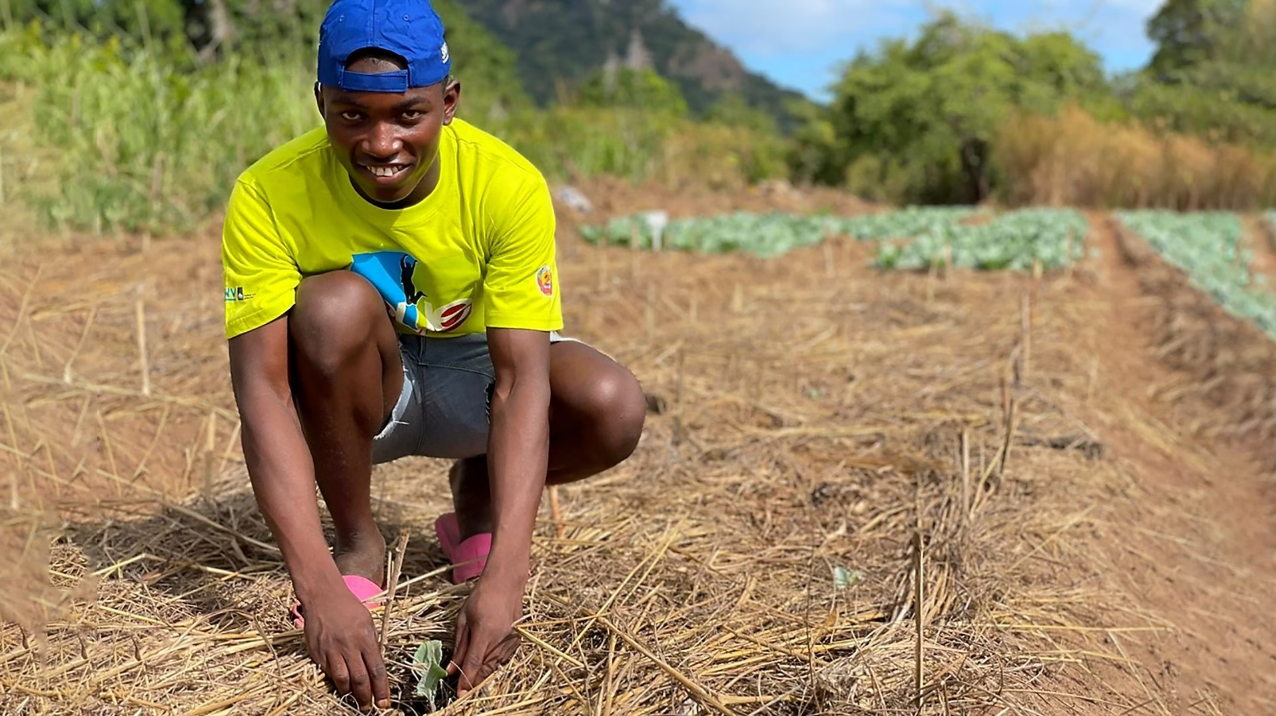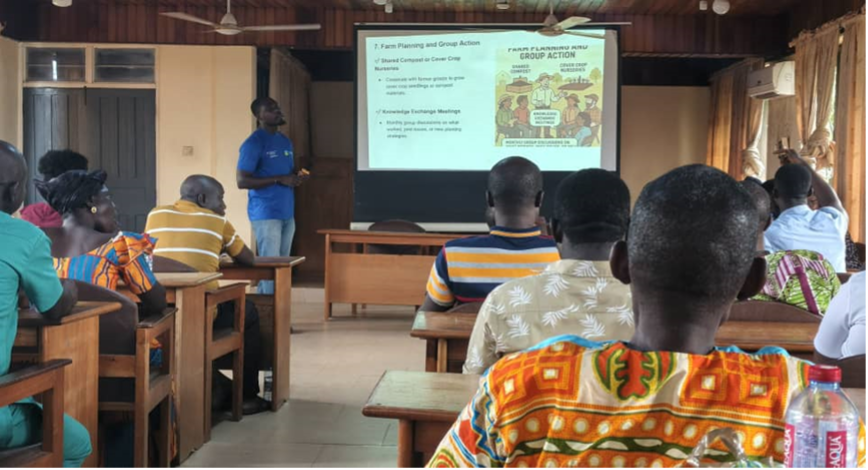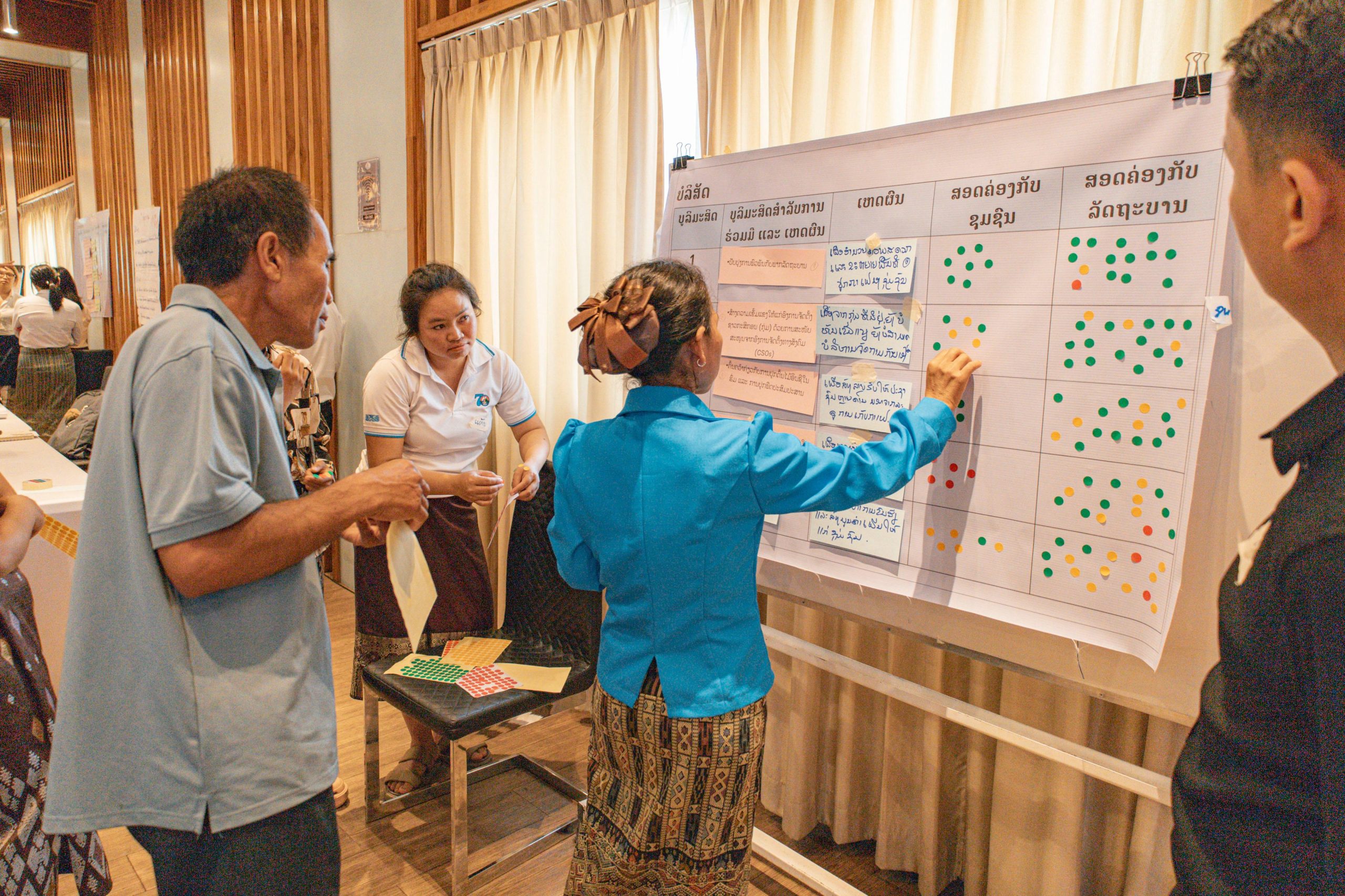
Promoting responsible land-based investment: A Business Transformation Lab in Laos
By Dr. Thipavong Boupha, Ms. Vongdeuane Soulalay, Laos TLI Project Lead
In the heart of Laos, the Business Transformation Lab (BTL) process is helping land-based investors, such as Saffron Coffee, to reshape the future of agriculture and community development. This participatory and holistic approach to business transformation fosters dialogue and collaboration between businesses, local communities, and government stakeholders. It is through this innovative process that we are setting in place mindset and practice changes with all stakeholders as they come together to co-create solutions that balance environmental sustainability with economic growth.
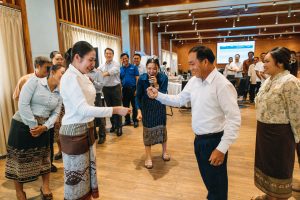
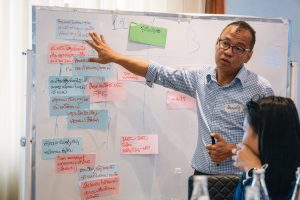
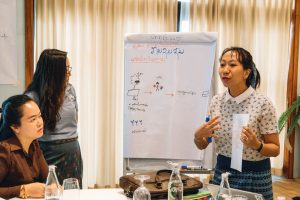
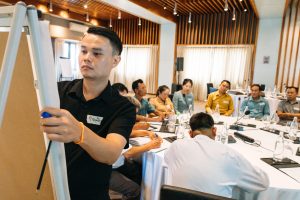
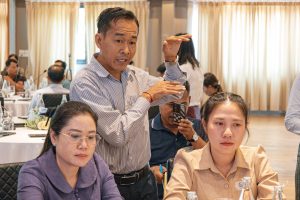
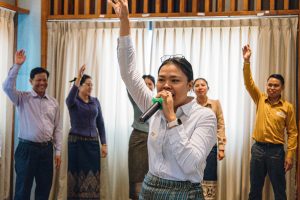
What is a Business Transformation Lab?
The BTL process focuses on making land-based investments more responsible and sustainable. It is not a quick-fix solution but a long-term commitment to improving business practices both internally and externally. The BTL offers a range of tools and collaborative opportunities for companies, local communities, and government bodies to understand and collaborate to overcome challenges, align expectations, and create actionable plans for sustainable development.
The BTL is grounded in thorough research and analysis. Before the co-creation workshops, we conduct extensive introductory meetings, household surveys, focus group discussions, and value network mapping with a variety of stakeholders. This groundwork allows us to identify the key constraints and opportunities within the business, community, and local government ecosystem, ensuring that all voices—especially those of the local communities—are heard and valued.
Co-Creation: A key element of the BTL process
A recent co-creation workshop held in Laos highlighted the value of bringing diverse stakeholders together to discuss business challenges and explore potential solutions. After focus group discussions with the community, house surveys and a deep dive into the business value chain, the TLI project partners in Laos convened a meeting with Saffron Coffee managers, smallholder coffee farming suppliers, local authorities, and other local farmers. Holding this open dialogue was a significant milestone in the BTL process.
Through facilitated discussions, participants were able to openly share their experiences, concerns, and expectations. For Saffron Coffee, this was an unprecedented opportunity to listen directly to the communities they work with, including those who do not yet participate in their contract farming model. For the farmers, it was a chance to voice their needs and aspirations, while local government officials provided insights into policy and regulatory challenges.
Stakeholders at the heart of the process
The BTL process thrives on the participation of key stakeholders, each of whom plays a crucial role in shaping the outcome of the workshop. In Laos, we invited around 40 participants to the co-creation meeting, including representatives from national and local government departments and INGOs, and communities from Saffron target villages.
The Saffron Coffee team was also present, including their managing director and site manager, who were eager to hear directly from the communities and gain a deeper understanding of the challenges and opportunities they face. The TLI team set up the meeting to ensure it was a collaborative environment that allowed an honest and productive exchange of ideas and the sharing of solutions to move forward. This combinationis essential for developing sustainable and scalable solutions.
Output and outcome: From discussion to action
The primary output of the co-creation workshop was the validation of key findings and the identification and consensus built around priority areas for improvement. By the end of the meeting, participants had a clearer understanding of the constraints faced by the company, the community, and the government. Together, they developed a prioritized action plan to address these challenges, laying the groundwork for future collaboration and progress.
For Saffron Coffee, the workshop was a turning point. As the managing director noted, the multi-stakeholder forum provided an excellent way to really understand the community’s needs before developing future plans. This shift in perspective is a testament to the power of participatory processes in transforming business practices.
Looking ahead, the outcome of the workshop is just the beginning. The next steps will involve following up on the action plan, ensuring that all stakeholders remain engaged, and continuing to support Saffron Coffee as they implement these changes. This process is ongoing, and while it will take time to see tangible results, the groundwork has been laid for a more sustainable and inclusive approach to land-based investment.
The road ahead
The BTL process is not only a catalyst for change within individual businesses but also a model for how land-based investments can be more inclusive, responsible, and sustainable. By prioritizing collaboration and mutual understanding of issues that are brought to the table by very clear evidence, we are creating a concrete foundation for long-term success that benefits not only investors but also the communities and ecosystems they depend on.
As we continue to work with Saffron Coffee and other land-based investors, we are confident that this approach will yield positive outcomes for all stakeholders. The lessons learned in Laos are just one example of how the BTL process is driving real change, and we look forward to sharing more success stories in the future.


